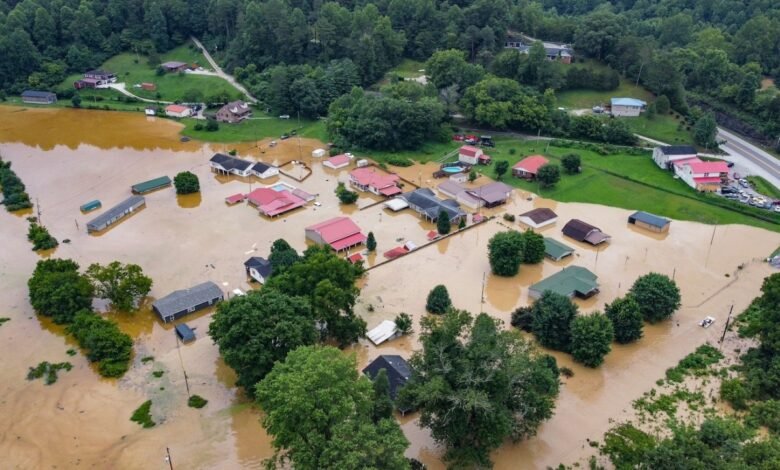Over half of homeowners fear impact of climate change on property: Survey – The Hill

- A LendingTree survey found that 51 percent of homeowners worry that extreme weather stemming from climate change will harm their homes, and their wallets.
- The survey found that 70 percent of homeowners think severe weather and rising sea levels stemming from climate change will cause their home insurance costs to rise.
- About half think that climate change-related weather and sea level rise will impact property values.
The rise of climate change-related extreme weather events like floods, hurricanes and heat waves is worrying homeowners in the U.S.
A roughly 2,000-person LendingTree survey published Monday found that 51 percent of homeowners fear climate-related hazards will affect their homes.
Survey findings also show about 50 percent of homeowners worry that extreme weather stemming from climate change and rising sea levels will affect property values.
Out of those people, 25 percent believe climate change will impact their home’s value within 10 years, while 25 percent think it will take more than a decade to impact their property value.
On top of this, 70 percent of homeowners think climate change-related risks will cause insurance prices to rise.
About 20 percent of survey respondents said their home insurance costs have already gone up because of such risks.
Homeowners are most concerned about severe storms, followed by hurricanes, flooding, heatwaves and wildfires, according to the survey.
Worries about how climate change will impact homes have caused some to relocate. About 40 percent of survey respondents said they live in an area they think is “at risk of climate change.”
And out of these people, 34 percent are considering moving and 13 percent have already moved.
A 2023 report from the First Street Foundation found that 3.2 million Americans relocated due to high flood risks alone between 2000 and 2020.
The organization predicts that an additional 7.5 million Americans will move away from areas with climate-change related hazards over the next 20 years.
Nowhere in the United States is fully protected from the consequences of climate change, despite some cities’ efforts to sell themselves as climate havens.
LendingTree Home Insurance Expert Rob Bhatt recommends having sufficient insurance and taking steps to minimize weather damage to a home before deciding to move.
“No one can predict the future, but you can take steps to minimize the damage a natural disaster may cause. For example, wind- and hail-resistant roofs and windows can make a difference,” he said.
“But if having enough insurance and taking steps to minimize damage aren’t enough to alleviate your concerns, you may be better off relocating to a different area in your community, or a different community altogether.”
Copyright 2024 Nexstar Media Inc. All rights reserved. This material may not be published, broadcast, rewritten, or redistributed.
Source link



